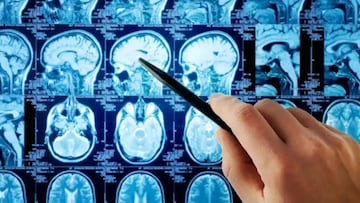Have I experienced this before? The new explanation of science for the ‘déjà vu’
A study carried out at the University of Colorado investigated a nearly century-old hypothesis for what causes that creepy feeling of ‘déjà vu’

It has happened to almost everyone at least once in their life. You are doing some activity, or visiting somewhere when, suddenly, something clicks in your head. “Haven’t I experienced this before?”, races to mind. Something that happens from time to time and is known as ‘déjà vu’, and colloquially as “glitch in the Matrix “(referring to the scene where Neo sees a black cat, and immediately another the same going through the same place).
From the outset we know that it is something impossible, that feeling of having lived it can no longer be feasible, especially if we visit a place for the first time, or if it is the first time that we carry out a specific task. A phenomenon that for hundreds of years has drawn the attention of philosophers, neurologists or writers, and that is commonly associated with the paranormal. There are several theories to choose from.
Also see:
Some think that it is a psychic ability, that it has a relationship with past lives or that it is associated with something supernatural. Alan Brown, a scientist, analyzed various surveys and documents at the beginning of the century and concluded that two out of three people have some déjà vu throughout their lives. And as he specified, the most common trigger for this phenomenon is the place where it occurs, followed by the conversation.
The current scene and a subconscious memory
According to the researcher, he also found evidence in the medical literature that this experience is associated with some types of seizure activity in the brain. A recent article by Anne Cleary, a professor of cognitive psychology at Colorado State University, recounts how her research team set out to prove century-old hypotheses about the causes of this phenomenon.
Thus, the hypothesis that Alan Brown formulated in his day was called the Gestalt familiarity hypothesis. It suggests that déjà vu can occur when there is a spatial resemblance between a current scene and another scene not remembered in our memory. In other words, this new space could be similar to another one where we have been, but which we consciously don't remember.
In this way, the arrangement of the elements (people, environment and various objects) can give rise to a similar structure that makes us think that we have been there before. So, the experts tested the idea in a laboratory, using virtual reality to 'place' people within the scenes. With the help of technology, they recreated the environments so that some scenes did not share the same design pattern.
The results, then, left no room for doubt: déjà vu were more common when subjects were in a scene that had the same spatial arrangement of elements as a previous scene they had already seen, but they didn’t remember. Thus, spatial similarity is at least one of the factors in which the origin of this brain short circuit lies. More research is being carried out.





